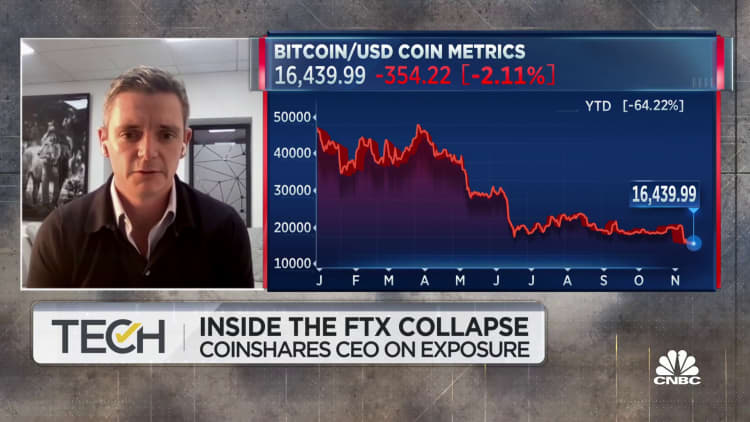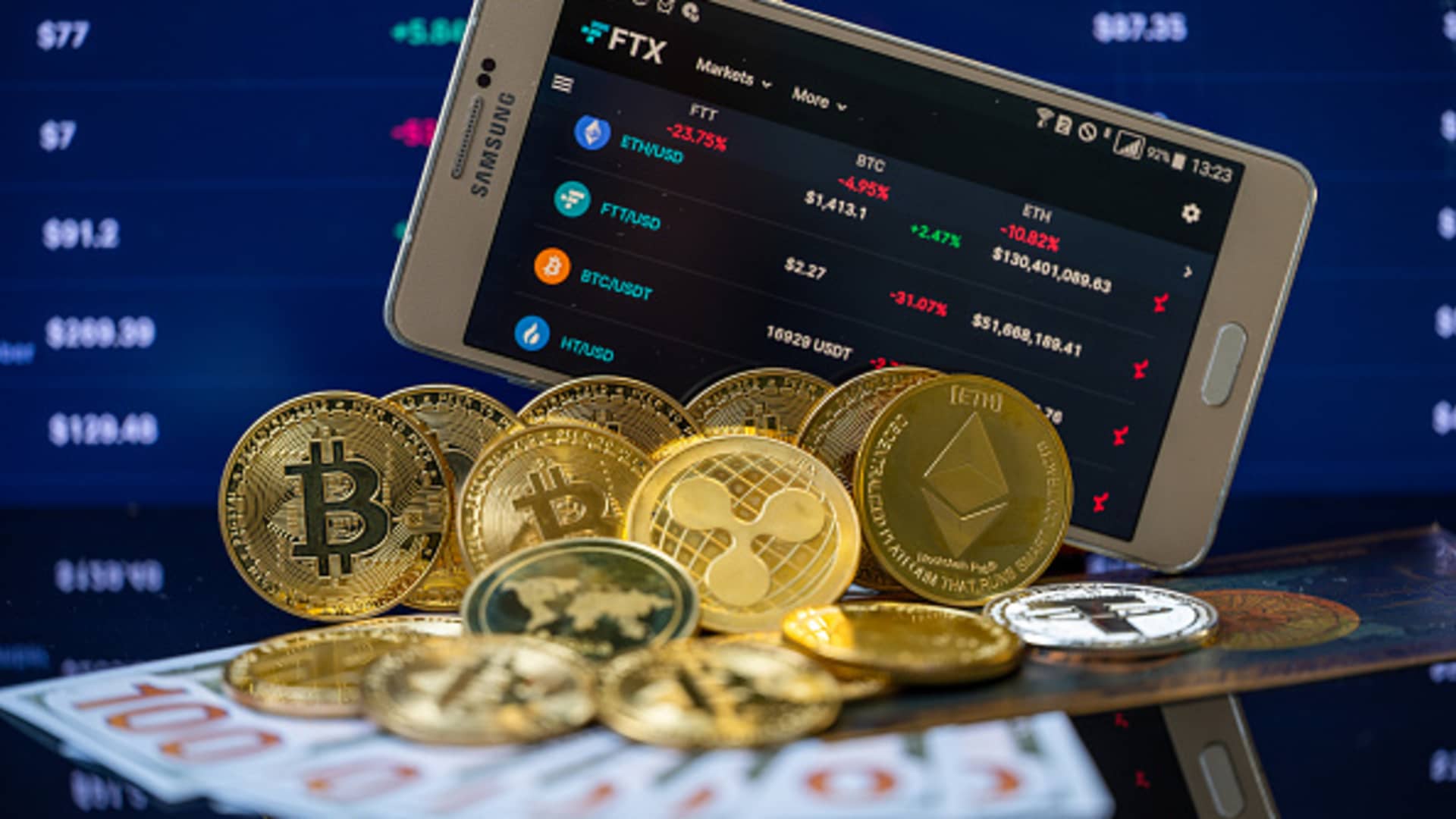
FTX logo with crypto coins with 100 Dollar bill are displayed for illustration. FTX has filed for bankruptcy in the US, seeking court protection as it looks for a way to return money to users.
Jonathan Raa | Nurphoto | Getty Images
In the latest fallout from FTX’s rapid collapse last week, the lending arm of the crypto investment bank Genesis Global Trading is pausing new loan originations and redemptions, the company announced in a thread of tweets Wednesday.
The lending arm of the bank serves an institutional client base and is known as Genesis Global Capital. At the end of its third quarter, it had more than $2.8 billion in total active loans, according to the company’s website.
“We recognize how challenging this past week has been due to the impact of the FTX news. At Genesis we are entirely focused on doing everything we can to serve our clients and navigate this difficult market environment,” Genesis wrote in a tweet.
“Our #1 priority is to serve our clients and preserve their assets.”
Later Wednesday morning, the Winklevoss brothers’ Gemini exchange said it was pausing withdrawals on its interest-bearing Earn accounts as a result of Genesis’ changes. Genesis is the lending partner for that program.
“We are working with the Genesis team to help customers redeem their funds from the Earn program as quickly as possible. We will provide more information in the coming days,” Gemini said, noting that the change doesn’t impact any other Gemini products and services.
At around noon eastern, reports surfaced that Gemini services were offline. The company said it experienced an AWS outage on one of its primary databases and that it was working to bring the exchange back up.
Genesis Trading, which acts as Genesis Global Capital’s broker/dealer, is independently capitalized and operated separately from that lending unit, interim CEO Derar Islim told customers on a call Wednesday, according to CoinDesk.
“Our spot and derivatives trading and custody businesses remain fully operational,” a Genesis spokesperson told CNBC. “With regards to lending, our number one priority is to serve our clients and preserve their assets. Therefore, we have taken the difficult decision to temporarily suspend redemptions and new loan originations in the lending business. We are working diligently to shore up the necessary liquidity to meet our lending client obligations.”
The decision reflects a sign of contagion outside of BlockFi, which is reportedly preparing for a potential bankruptcy filing, according to the Wall Street Journal. The cryptocurrency lender had already halted withdrawals of customer deposits and admitted that it has “significant exposure” to the now-bankrupt crypto exchange FTX and its sister trading house, Alameda Research.
The Journal, citing people familiar with the matter, added that BlockFi is also planning to lay off more of its workers as it braces for a possible Chapter 11 filing, though the firm stopped short of saying a majority of its assets are custodied by FTX.
A representative from BlockFi did not immediately respond to requests for comment.
Sam Bankman-Fried’s cryptocurrency exchange FTX filed for Chapter 11 bankruptcy protection in the U.S. last week, according to a company statement posted on Twitter. Bankman-Fried has also stepped down as CEO and has been succeeded by John J. Ray III, though the outgoing chief will stay on to assist with the transition.
Approximately 130 additional affiliated companies are part of the proceedings, including Alameda Research, Bankman-Fried’s crypto trading firm, and FTX.us, the company’s U.S. subsidiary.
In a matter of days, FTX went from a $32 billion valuation to bankruptcy as liquidity dried up, customers demanded withdrawals and rival exchange Binance ripped up its nonbinding agreement to buy the company. FTX founder Bankman-Fried admitted last week that he “f—ed up.”
FTX may have more than 1 million creditors, according to an updated bankruptcy filing Tuesday, hinting at the huge impact of its collapse on crypto traders.












